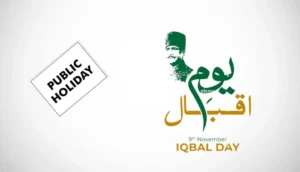Islamabad, Feb 20: Dr. Raghib Hussain Naeemi, Chairman of the Islamic Ideological Council, has announced the official guidelines for Fitrana (Zakat al-Fitr) and Roza Fidya (compensation for missed fasts) for this year, emphasizing the importance of fulfilling these religious obligations according to one’s financial means.
The council has set the minimum Fitrana amount per person at Rs. 220, based on the prevailing wheat prices. However, those wishing to contribute using other staple foods such as dates, raisins, or dried apricots will have to pay different rates. The Fitrana for dates has been set at Rs. 1,650, for raisins at Rs. 2,500, and for dried apricots at Rs. 5,000.
Dr. Naeemi stressed that Fitrana is a mandatory charitable contribution for every Muslim, regardless of age or gender, and must be given before Eid prayers to ensure that the less fortunate can also partake in the celebrations.
READ MORE: Government Plans Rs. 20 Billion Ramadan Relief Package on PM’s Directive
For those unable to fast, the council has outlined Fidya payments based on various staple food prices. The compensation for missing all 30 fasts amounts to Rs. 6,600 if calculated using wheat, Rs. 13,500 for barley, Rs. 49,500 for dates, Rs. 75,000 for raisins, and Rs. 150,000 for dried apricots. This allows individuals to compensate for their missed fasts in accordance with their financial capacity.
In addition, Kaffara (atonement) for deliberately breaking a fast requires either fasting continuously for 60 days or feeding two meals each to 60 underprivileged individuals. Dr. Naeemi highlighted that those seeking to fulfill their Kaffara obligations should do so in a manner that ensures maximum benefit to the needy.
To make the process more accessible, a reduced rate of Rs. 160 has been introduced for those purchasing government-subsidized wheat flour, allowing them to meet their Fitrana and Fidya obligations at a lower cost.
The Islamic Ideological Council urges all Muslims to calculate and distribute their Fitrana and Fidya responsibly, ensuring that the funds reach those in need before the end of Ramadan. The timely payment of these charitable obligations helps foster a spirit of compassion and social support within the community.









